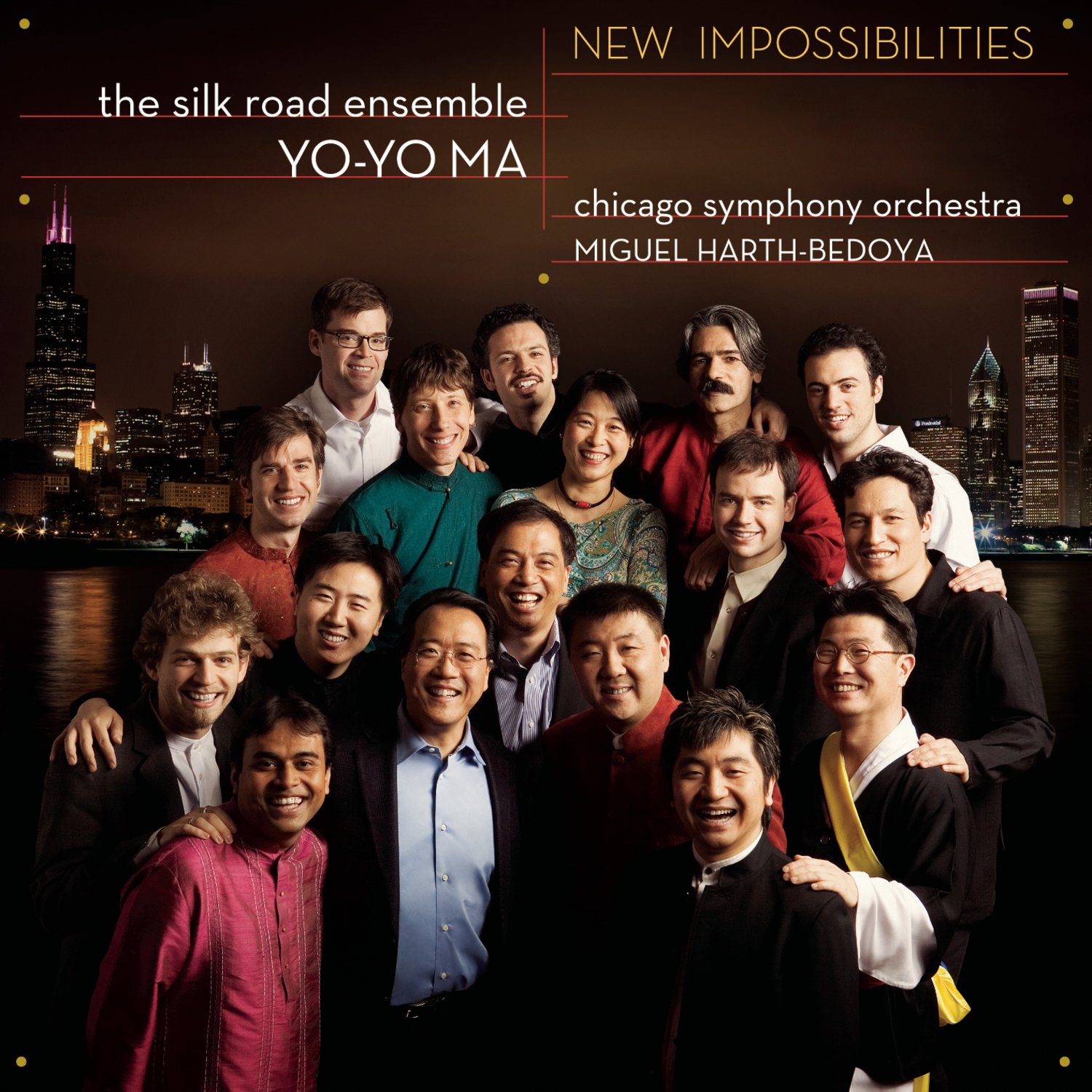Night of the Flying Horses
Night of the Flying Horses (2002)
Night of the Flying Horses starts with an Yiddish lullaby that I composed for Sally Potter's film The Man Who Cried, set to function well in counterpoint to another important music theme in the soundtrack: Bizet's Aria Je Crois Entendre Encore, from The Pearl Fishers. In her film Sally explores the fate of Jews and Gypsies in the tragic mid-years of the 20th century, through a love story between a Jewish young woman and a Gypsy young man. The lullaby metamorphoses into a dense and dark doina (a slow, gypsy, rubato genre) featuring the lowest string of the violas. The piece ends in a fast gallop boasting a theme that I stole from my friends of the wild gypsy band Taraf de Haïdouks. The theme is presented here in a canonical chase between two orchestral groups.
Appears on:
New Impossibilities – The Silk Road Ensemble (2007)
This latest addition to Yo-Yo Ma's Silk Road project is a thrill a minute. The most "famous" composer represented here is Osvaldo Golijov, whose "Night of the Flying Horses" fascinates with its sampling of "Je crois entendre encore" from Bizet's Pearl Fishers, while a high violin line and mournful cello alternate above it; the piece goes wild about two-thirds of the way through in the section called, appropriately, "Gallop." The other composers all offer equally fascinating pieces as well: the thrilling rhythms of Rabih Abou-Khalil's "Arabian Waltz"; Zhou Long's "Song of the Eight Unruly Poets" (what a title!), with its high-pitched strings (members of the Chicago Symphony Orchestra take part in many of the works); the cinematic battle music of "Ambush from Ten Sides," featuring the twangy, acidic tones of the pipa, which ends in a true conflagration of violence, complete with shouting; and "Vocussion," a brief, cool piece with scat singing and boom-boxing. There's more — much more — in this portrait of world music, and it's all wonderful.
— Robert Levine
